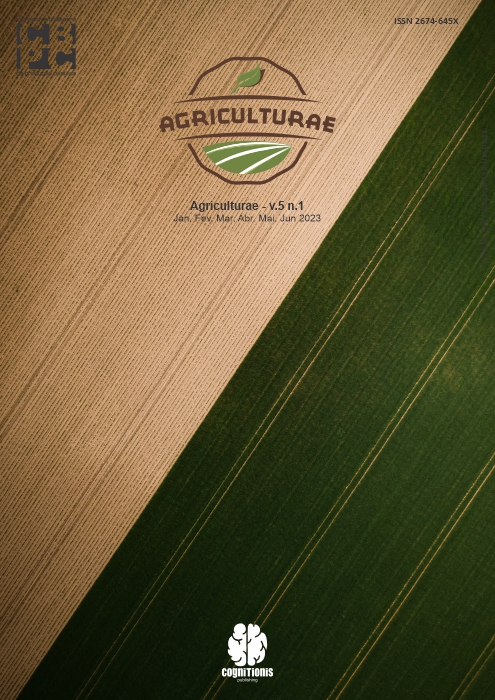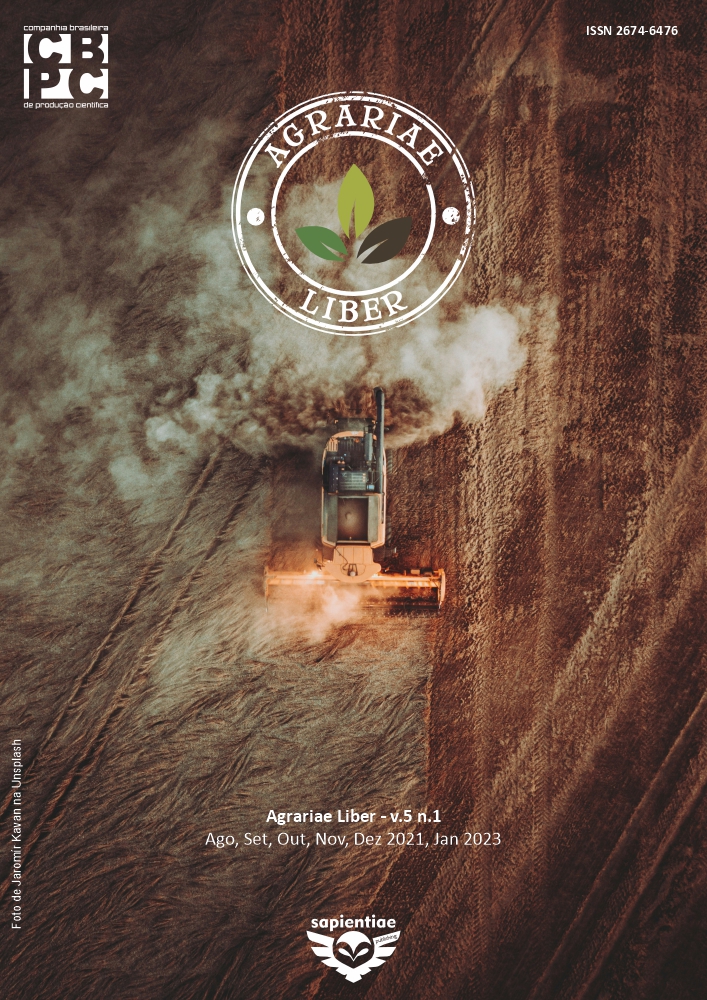Potential metabolites of endophytic fungi from dry forest to biocontrol of sclerotinia sclerotiorum
DOI:
https://doi.org/10.6008/CBPC2237-9290.2023.001.0006Keywords:
Phomopsis, Fusarium, White mold, Biological controlAbstract
Dry Forest is a phytophysiognomy of the Caatinga biome that is little known regarding the endophytic microorganisms associated with its plant species. Endophytes are abundant sources of bioactive compounds with applicability in agriculture, especially in the biological control of phytopathogens. The antagonism of 7 endophytic fungi of the genera Phomopsis, Pestalotiopsis, Colletotrichum and Fusarium, isolated from Mata Seca plants was evaluated to Sclerotinia sclerotiorum through direct pairing and non-volatile metabolites. The S. sclerotiorum-bean pathosystem was chosen for the evaluation of fungal metabolites in seed germination, seedling development and damping-off caused by the pathogen. The endophytes Phomopsis sp. (IM 46 - obtained from Cedrela fissilis) and Fusarium sp. (IF 357 - obtained from Anadenanthera colubrina) showed 24 to 63% and 19 to 63% inhibition of mycelial growth of the pathogen, respectively. The non-volatile metabolites of Phomopsis sp. and Fusarium sp. caused reduction in hypocotyl, epicotyl and root size of germinated seeds when increasing doses were used. In vivo assay, the metabolite of Fusarium sp. allowed better seedling development and lower incidence of damping-off by S. sclerotiorum. Phomopsis sp. and Fusarium sp. are potential antagonists to S. sclerotiorum. Knowledge of the composition of metabolites and mode of action in the plant and pathogen needs to be investigated.
Downloads
Downloads
Published
Issue
Section
License
Copyright (c) 2023 Natural Resources

This work is licensed under a Creative Commons Attribution-NonCommercial-NoDerivatives 4.0 International License.
The CBPC - Companhia Brasileira de Produção Científica (Brazil CNPJ: 11.221.422/0001-03) the material rights of the published works. The rights relate to the publication of the work anywhere in the world, including rights to renewals, expansions and dissemination of the contribution, as well as other subsidiary rights. All electronically published works may subsequently be published in printed collections under the coordination of this company and / or its partners. The authors preserve the copyright, but are not allowed to publish the contribution in another medium, printed or digital, in Portuguese or in translation.








